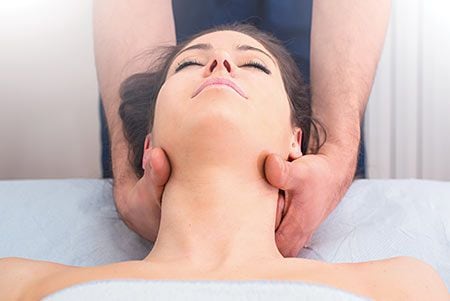
Stress comes in many forms and affects each of us differently. It can be created by everyday life, and it can also affect everyday life. Many people feel the effects of stress physically, even if the root cause isn’t physical. Social, emotional and mental stress can cause symptoms of pain, inflammation and restricted movement—very similar to symptoms created by physical stress. Chiropractors can help you identify sources of stress, create a plan to help reduce those stressors, and treat their physical symptoms.
Exercise and Nutrition
Exercise has been shown to reduce physical, mental and emotional stress, and regular exercise, even just a walk around the block or your office, will help reduce stress in daily life. Exercise has an obvious physical benefit for your heart, lungs, muscles and bones. It can also help to decrease anxiety and depression, both of which can produce real physical symptoms. Many people have experienced the mood-boosting effect of exercise: Bringing more blood flow to the brain improves the body’s reaction to stress, as well as increases circulation to all of the tissues of the body.
As part of a healthy lifestyle, a diet that is well-balanced nutritionally can help reduce physical stresses such as obesity and high blood pressure. And studies show a correlation between proper nutrition and brain health. Chiropractors can help you with recommendations for nutritional modifications that can keep your stress at a minimum.
How Chiropractic Care Can Help With Stress
No matter where the stress is coming from, a visit to the chiropractor can help reduce pain, inflammation and difficulty moving. An adjustment to improve your spinal health will also help the body’s nervous system function at its best.
Massage therapy and/or trigger point therapy are great additions to chiropractic care for symptoms of stress. Research shows that massage therapy is an effective way not only to increase relaxation, but also to help eliminate physical stress that may be contributing to mental stress. Trigger point therapy is a targeted treatment for “muscle knots” (or “trigger points”). Those areas of tender and taut muscle fibers are often the result of stress, and trigger point therapy works to break up the muscle fibers to help them lie smoothly, promote circulation and relieve pain and tension.
Sleep
Proper sleep is important for stress management. Most adults need an average of seven to nine hours of sleep each night. What is equally as important is how and when you fall asleep, as well as your waking time. While stress can affect your sleep, a good bedtime routine, including falling asleep at the same time each night and waking at the same time each morning, will help you get the quality and quantity of sleep you need. Studies have suggested that going to bed an hour or more before midnight improves sleep quality. Massage therapy and chiropractic care can be essential for prevention and treatment of musculoskeletal pain that could get in the way of a good night’s rest.
People respond to stress differently, and there may be a variety of stress relief therapies and techniques that work for you. Please let us know if you need help finding the source of your stress or if you would like recommendations for the treatments that may work best for you.
